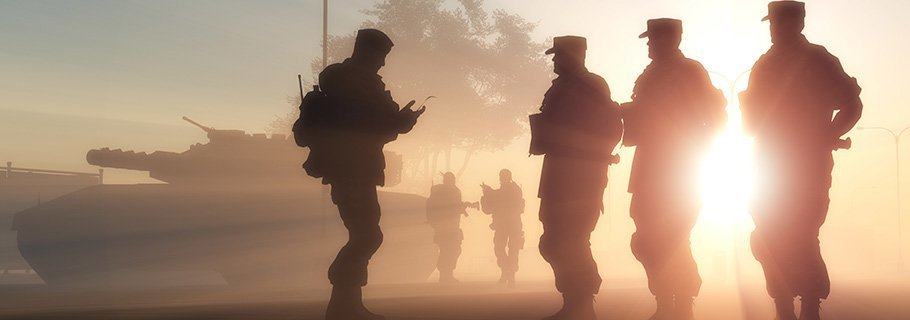I enjoy a good war movie every now and again. I’m not talking about the senselessly violent ones that exist only to find new and creative ways of showing splatter and gore, but the realistic, or at least mostly realistic ones. There is something useful about those movies, I think, and something helpful about seeing war for what it really is, provided that the point is not glamorizing violence or brutality, but exposing us to the reality and the horror of human depravity along with the redemption that can be found in the midst of it.
Some of my favorite movies are the ones that show a remarkable feature of certain armies, and perhaps especially the American military: the resolution that no matter the circumstances, every soldier will be accounted for.
Many armies devalue human life, and devalue their own soldiers, by caring more for the group than for individuals, more for the army than for the soldiers. They will leave their soldiers in captivity, or allow their bodies to remain on the field. But the American military, and others like it, promise this: No man left behind. Whether you are alive or dead, your army will do all it can to ensure that you, or your remains, are accounted for. When you walk into battle, you do not need to fear that you will be abandoned, neglected, or forgotten. Your brothers-in-arms will fight for you, your superiors will battle on your behalf. They will risk their lives for yours. I can only imagine the comfort and security this brings as soldiers march toward the battlefield. After all, what could be more intimidating than the thought of being forever abandoned and forgotten?
On my flight to Australia they were showing Lone Survivor . I didn’t watch it all, but I have read the book and got the point of the film: one man had been left behind and U.S. military might was deployed to rescue him. (Spoiler warning!) The movie culminates in an American soldier busting into this man’s hiding place and assuring him that he is now safe, that he will not be left behind. The soldier, and the audience, then breathes a sigh of relief, knowing that he, too, is accounted for.
And as the credits rolled I found myself thinking about the church, another place where I hope no man is left behind (or no woman, or no child, for that). We should expect no less from ourselves.
If your church is sharing the gospel and reaching out into tough places and difficult situations, it seems likely that it has become involved in all manner of problems. Your church will attract people who struggle with every kind of sin and they will bring sin and addiction and heartbreak into the church with them. They will be vulnerable, they will sometimes sin in big and blatant ways, they may well wander off for a time. The temptation will be to allow people to fall by the wayside, to allow the wanderers to wander indefinitely, and to go on sharing the gospel despite so much attrition. Sometimes it is far easier to go about your convenient life than to risk your time, your attention, or your comfort for one of them. Months later you find yourself asking, “Whatever happened to…?” They are gone, and you barely noticed.
No man left behind. I think of Jesus and his great prayer as his life and earthly ministry drew to a close. He prayed to the Father to say about the people that had been entrusted to him, “I have guarded them, and not one of them has been lost…” He knew his mission and he carried it to the very end. They could have wandered. By all rights they should have wandered and should have been lost. But he cared for them and he protected them to the end.
As Christians, we are charged with caring for one another–the shepherds first and every church member after them. It brings all manner of joy, comfort and security when we affirm, and when we insist, that we will not leave even one person behind. We will guard them, we will guide them, we will pursue them, we will pray for them, we will love them, we will pursue them to the very end. No man will be left behind.










